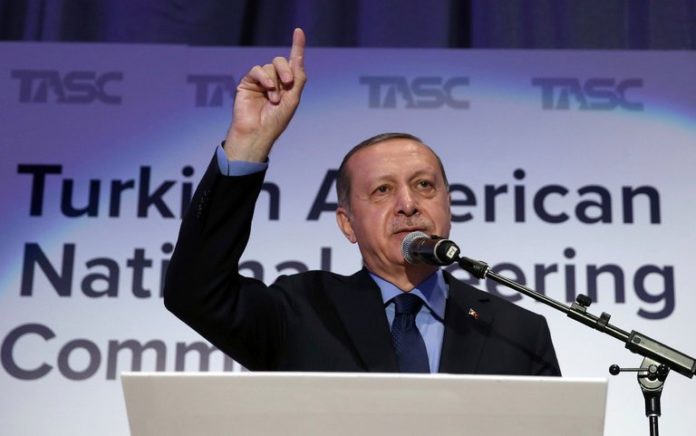ANKARA (REUTERS) — Despite its fury with the United States for calling the Ottoman massacre of Armenians a genocide, Turkey is for now avoiding a showdown which could hurt its fragile economy and scupper hopes of better ties with U.S.-allied Arab states.
President Tayyip Erdogan angrily condemned Joe Biden’s characterization of the killings a century ago, saying the U.S. president should “look in the mirror” and examine the fate of Native Americans wiped out by settlers who founded his country.
But the usually combative Turkish leader, who has often used foreign disputes to rally domestic support, is more focused on reviving a battered economy which is key to his long-term reelection prospects.
In a largely restrained response, he has taken no concrete retaliatory steps, and addressed the issue just once since Biden’s historic declaration on Saturday.
In the same televised speech in which he lashed out at Biden’s “baseless, unjust and untrue remarks,” Erdogan stressed that the two leaders could forge a new start when they meet in June for the first time since Biden took office.
That softer tone reflects the delicate path Erdogan is treading between fury over the genocide designation and fear of the damage which could be done by a deeper rift with Washington.










